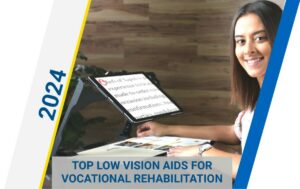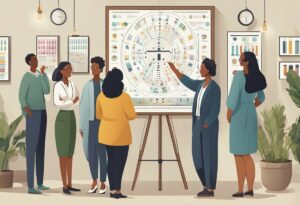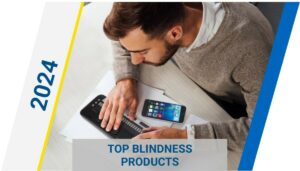Assistive Devices and Technology for Low Vision
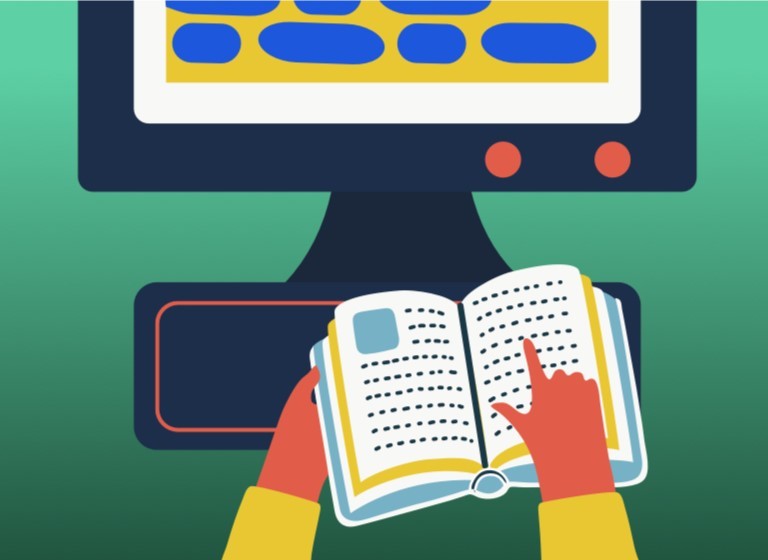
Are you having difficulty reading your mail or recipes? Would you like to see your family photos again? A CCTV could be just what you need! 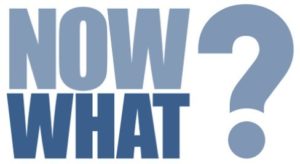
In macular degeneration, central vision is affected, while peripheral vision remains unchanged. You might experience a blurred area in the center of your vision or blank spots. Complete blindness does not occur from macular degeneration alone, but it can affect your ability to see faces, drive, read, and write, among other things.
Adapting to vision loss
While you can still do many of your everyday activities with macular degeneration, you might need to adapt them to your changing vision, using assistive devices and technologies. A trained OT or certified low-vision specialist can help you navigate the choices of assistive devices.
Devices
There are a variety of handheld and household devices that can help make everyday activities easier with MD. Some people use one or two, while others might have many assistive devices. As your vision changes over the course of your macular degeneration, you might find yourself using some of these at different points of the condition.
Some of these devices include:
- Handheld and desktop magnifiers: These come in a variety of strengths, as well as contrasting color options, to help you see better. You can bring these with you to different areas of the house, or use them to assist you with various things you do, like reading or sewing.
- Adaptive devices: Large-numbered clocks, phones, and microwaves can help you see more easily; talk functions on clocks can tell you the time.
- Large-print reading materials: Many publishers print large-print books; these are often accessible from the library; there are also audiobooks through special apps, at the library, and for purchase.
- Eyeglasses with high-powered lenses: There are adaptive lenses that have high magnification, as well as telescopic lenses; they can also reduce glare and provide high contrast.
Technologies
In addition to all of the assistive devices, there are also multiple technologies available that can assist those with low vision.
- Special computer software can be installed to help magnify the text on the screen, and there is speech-to-text software that can help transcribe emails for you, as well as programs that convert text to speech.
- There are reading devices that can convert written text to speech; these can be connected to a computer, or they can be portable.
- Closed-circuit television (CCTV) magnifiers can also be helpful. This is a combination of a camera and magnifying system: when the camera is pointed at an object, a magnified image of the object appears on the television screen, allowing you to see the object better.
Resources
If you are experiencing vision loss or low vision from macular degeneration, talk with your eye doctor about how assistive devices and technologies might be helpful to you, especially as the condition progresses. These can help you maintain your independence and enable you to continue doing the everyday activities that you enjoy. They can provide you with resources that offer assistive devices and technologies. A certified low-vision therapist or OT can help you acquire these devices and technologies, and show you how to best use them for your needs.
This article was written and published by the MacularDegenaration.net. To read the article in its entirety, you can visit this link https://maculardegeneration.net/assistive-devices/
We Are Here To Help
If you or a loved one have been diagnosed with Macular Degeneration, we have prepared a 12-part eBook <Click here to download a PDF of the entire report.>
To learn more about how we can Bring Hope to people who are blind or with low vision, contact a Technology Specialist at New England Low Vision and Blindness to learn more. You can also call our toll free number 888-211-6933 or email us at info@nelowvision.com.
Our two(2) state-of-the-art technology showrooms are a wonderful resource, showcasing a variety of leading electronic low vision magnifiers and blindness products. You can schedule an appointment with one of our Technology Specialist who can help you find the right technology, training and care solution.
If you cannot come to us, our staff can even drive out and bring our Vision Store to you, for a no-obligation product demonstration. We offer a comprehensive line of products including electronic magnification low vision aids, blindness products, and leading low vision products for people with glaucoma, macular degeneration and other forms of vision loss.

